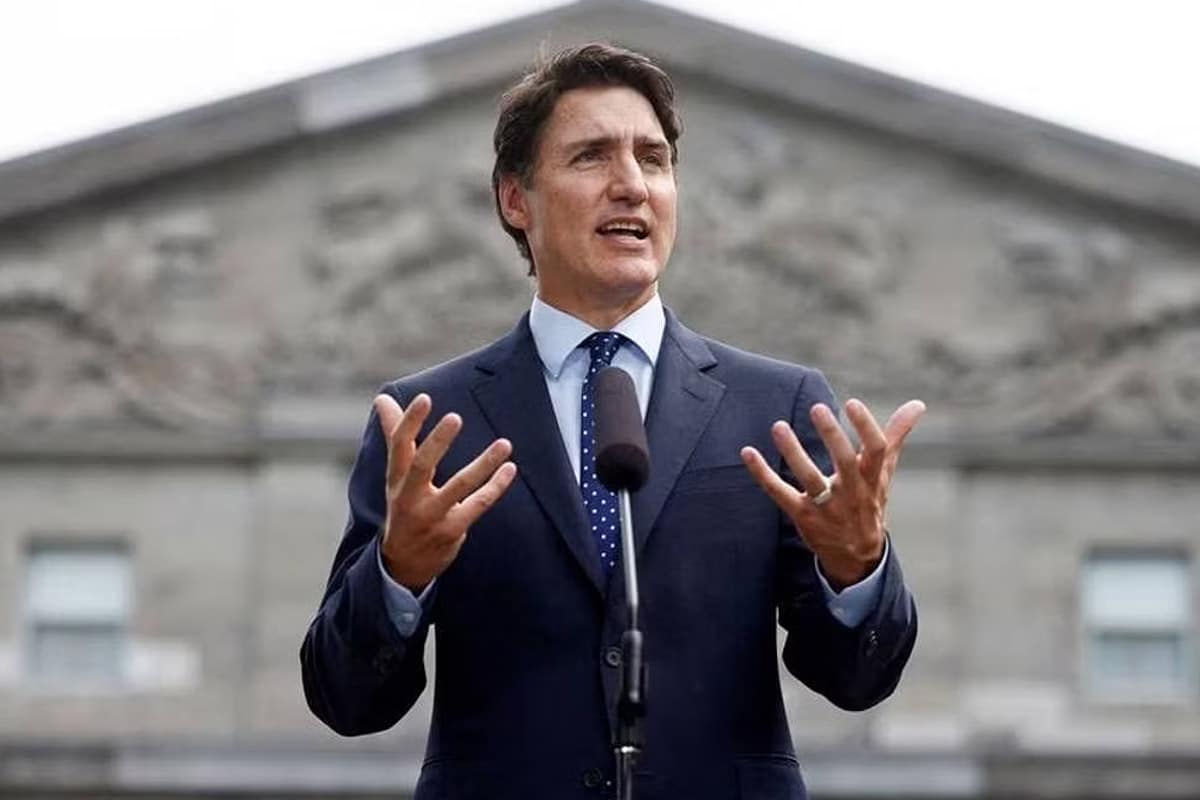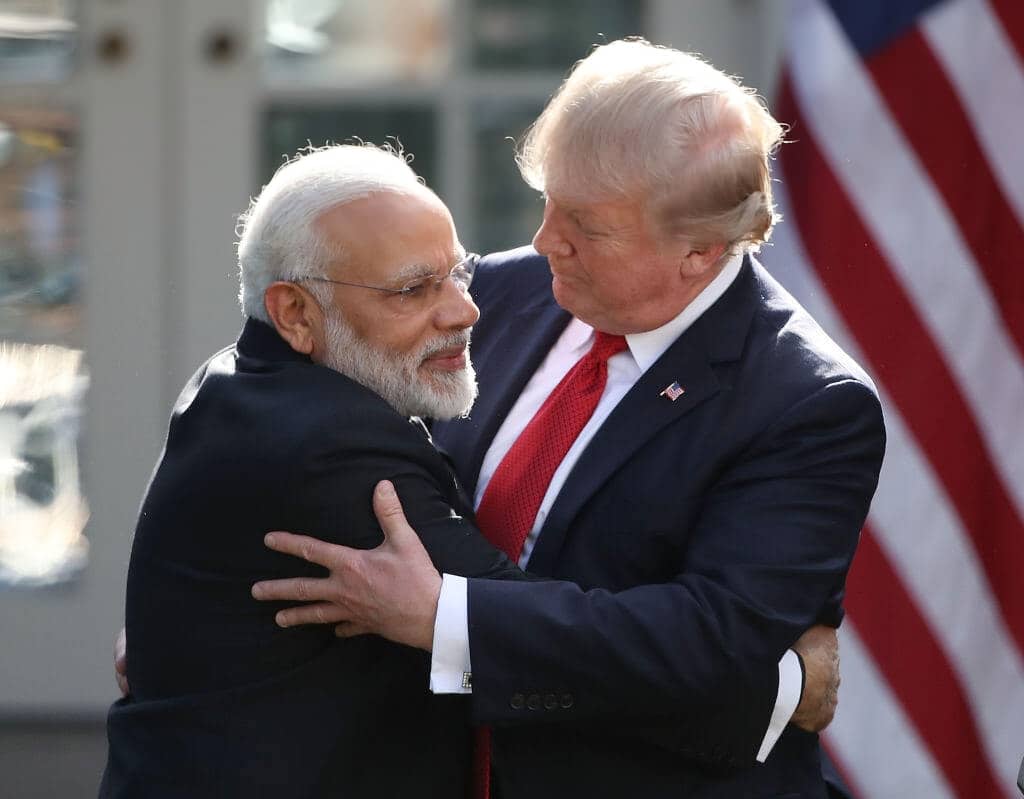Unlike his father, Justin Trudeau must heed India’s caution against Sikh separatism
On 18 September, Canadian Prime Minister Justin Trudeau, who one can presume believes he is the embodiment of righteousness in an otherwise matter-of-fact world, stood up in the House of Commons to put forth an allegation for which, over a month later, he is yet to present any proof.
The Canadian intelligence, he said, was pursuing “credible allegations potentially linking” India to the killing of Hardeep Singh Nijjar, who was shot dead outside a gurdwara in Surrey, British Columbia, in June.
“Any involvement of a foreign government in the killing of a Canadian citizen on Canadian soil is an unacceptable violation of our sovereignty,” declared the 51-year-old leader of the Liberal Party of Canada. A master at waxing eloquent, he conveniently omitted that Nijjar, the “Canadian citizen” in question, was the fountainhead of a Sikh separatist outfit (Khalistan Tiger Force), had an Interpol red-corner notice against him, or that the Government of India had declared him a “terrorist” in 2020.
And just like that, Trudeau set the cat among the pigeons, without thinking about the droppings. The Canadian leader, who does his best to indulge critics by embarrassing himself every now and then — the Elbowgate, or the ‘brownface’ controversy, to name a few — outdid himself by vexing India, without having presented a shred of evidence to back his claim.
The ensuing diplomatic fracas cemented two notions that have been widely acknowledged by foreign policy wonks the world over. First, India is not the kind of emerging power that will take any aspersions lying down and second, Washington and other key players that steer the ‘Western world’ see New Delhi as an essential ally in the Indo-Pacific and their best bet to counter an increasingly assertive and expansionist Beijing.
Trudeau, according to The Washington Post, had raised the issue of Nijjar’s killing with allies, including the Five Eyes countries, but neither of them thought the allegation was credible enough to discuss it with Prime Minister Narendra Modi during the G20 Summit.
Even back home in Canada, opposition leader Pierre Poilievre of the Conservative Party, who, according to a recent Ipsos poll is now more popular among Canadian voters than Trudeau, demanded that the Canadian prime minister “come clean with all the facts”.
Over a month has passed since, and Trudeau has yet to present any evidence whatsoever to support his claim. That, however, did not stop him from talking “about India” with the president of the UAE on the day that Hamas launched an unprecedented attack against Israel.
But with all that’s happened between India and Canada, there are two key questions that need to be discussed: how is India navigating the waters following Trudeau’s attempt to rupture its equation with the ‘West’, and what does this mean for India-Canada ties going forward?
How India is navigating the waters
India has put forth a robust rebuttal to Trudeau’s claims, while categorically conveying to its ‘Western’ allies how Ottawa turned the wool over its own eyes when New Delhi urged it to act against the threat of Sikh separatism festering on Canadian soil. One can only presume that those in Washington and other ‘Western’ capitals have not forgotten how the failure of Justin’s father Pierre Trudeau to take India’s warnings seriously resulted in the 1985 Air India bombing that killed 329, of whom 278 were Canadian citizens.
That India is a Quad ally and its ‘strategic partnership’ with the US has never been more pronounced remains a fact. A report by The New York Times suggesting that “shared intelligence among Five Eyes partners” prompted Trudeau to make the charge will not change that.
Moreover, it has long been argued that Canada is no longer the ‘middle power’ it was in the mid-20th century and that the economic advancement of emerging powers, including India, coincided with the decline of Canada’s role in the geopolitical order. Its two failed bids for a permanent seat at the UN Security Council are proof of that.
What happens to India-Canada ties
Canada is home to a thriving Indian diaspora which makes up nearly four percent of the country’s total population. The influence of Sikhs, who account for a significant portion of the Indian diaspora there, is such that when Trudeau first came to power in 2015, he included four Sikh ministers in his then 30-member cabinet. Even now, his government is dependent on the New Democratic Party (NDP) and its leader Jagmeet Singh to remain in power till the federal elections in 2025.
Moreover, by Ottawa’s own admission, India “has been the largest source country for international students” in Canada since 2018.
Against this backdrop, it would be foolhardy to advocate that neither country takes measures to normalise bilateral ties. Both will have to make a sincere effort to voice their concerns.
Trudeau will benefit from a comprehensive understanding of the dangers of Sikh extremism and why separatism of the kind espoused by proponents of ‘Khalistan’ cannot be shielded in the name of free speech and is as dangerous for Canada as it is for India.
On its part, India must reiterate that the “rules-based international order”, which Canada says is at the heart of its foreign policy, dictates that countries not disrespect their allies by making unsubstantiated claims to remain relevant on the domestic political scene.
Asha Jadeja is a Silicon Valley-based entrepreneur, venture capitalist, philanthropist and a ‘change agent’. She tweets @ashajadeja325. Views are personal.
Photo: Canadian Prime Minister Justin Trudeau | Photo: Reuters



